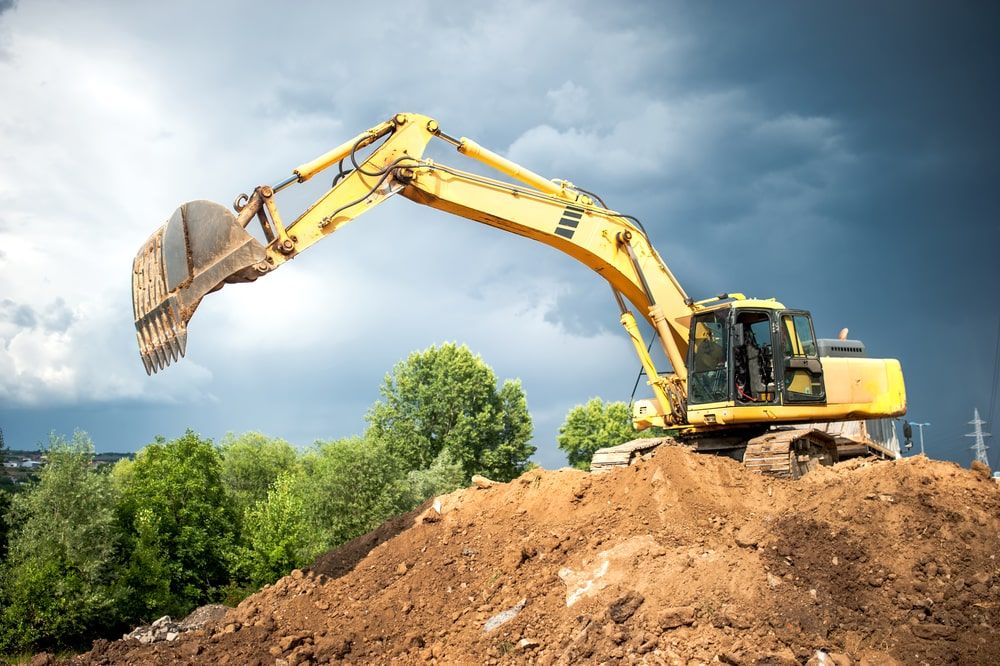Excavating Ohio - Top Excavation Professionals for Ohio Projects
Excavating Ohio - Top Excavation Professionals for Ohio Projects
Blog Article
Comprehensive Excavation Methods: Understanding the Principles for Success
In the world of construction and civil engineering, the value of reliable excavation strategies can not be overemphasized. The mindful preparation, accurate implementation, and meticulous attention to information called for in excavation jobs demand an extensive strategy that encompasses numerous essential aspects. From preliminary soil analysis to the implementation of precaution and routine progression tracking, understanding these core components is necessary for accomplishing success in any kind of excavation undertaking. Nevertheless, real proficiency exists not merely in comprehending these fundamentals but in seamlessly integrating them to navigate the intricacies of excavation projects with skill.
Comprehending Excavation Project Preparation

The preliminary stage of any excavation job is the preparation phase, where crucial choices are made that can considerably affect the result of the task. Recognizing the project scope, timeline, and budget plan constraints is essential for producing a detailed excavation plan that makes sure the job's success.
One trick facet of excavation task planning is the advancement of a comprehensive timeline that details the series of deadlines, activities, and landmarks. This timeline functions as a roadmap for the job team, permitting them to track development and make required changes to make certain the project remains on schedule. Furthermore, a well-defined budget that makes up all expenditures, including equipment service, labor costs, and materials, is vital for avoiding price overruns and hold-ups. By very carefully considering all these variables throughout the drawing board, excavation tasks can be executed efficiently and effectively, bring about successful end results.
Dirt Analysis and Site Assessment
Performing comprehensive dirt analysis and site analysis is an important action in the preparation stage of any excavation project. Soil analysis entails figuring out the make-up, structure, and buildings of the soil at the excavation website. This info is vital for comprehending the soil's bearing ability, moisture content, and possibility for erosion, which are key consider figuring out the excavation techniques and devices required for the project.
Site assessment exceeds dirt evaluation and incorporates a more comprehensive analysis of the total site conditions. This assessment includes identifying any potential risks, such as underground utilities, environmental issues, or unpredictable surface, that can influence the excavation process. By completely examining the site, task supervisors can develop effective excavation approaches that focus on safety and security, performance, and ecological protection.
Utilizing innovative modern technologies like ground-penetrating radar, dirt sampling, and drone studies can boost the accuracy and performance of dirt evaluation and website assessment. Spending time and resources in these initial actions can inevitably save time and prevent pricey hold-ups or difficulties throughout the excavation procedure.
Devices Selection and Use
Efficient excavation tasks count greatly on critical devices selection and utilization to ensure ideal efficiency and efficiency. Selecting the appropriate tools for the work is critical in optimizing effectiveness and minimizing downtime. Aspects such as the type of soil, depth of excavation, and task extent play a substantial duty in identifying the most ideal tools for the job available.

In enhancement to choosing the appropriate devices, proper utilization is crucial to task success. Operators has to be trained to handle the equipment securely and efficiently - lancaster excavation. Normal upkeep checks and timely repair work help avoid breakdowns and make sure constant performance throughout the job
Precaution and Rules Compliance
In the realm of excavation projects, focusing on this security steps and compliance with regulations is paramount to making certain a safe and lawfully audio functional atmosphere. Precaution incorporate a variety of methods, including performing extensive website assessments, executing proper signs and obstacles, and supplying appropriate safety training for all employees involved in the excavation process. Adherence to regulations, such as OSHA demands in the USA, makes sure that the excavation project fulfills the needed criteria to protect employees, spectators, and the surrounding atmosphere.

Surveillance Development and Adjusting Methods
Just how can predict supervisors properly track the improvement of excavation projects and adjust their techniques as necessary to enhance outcomes? Surveillance progression is necessary for making sure that excavation projects remain on track and satisfy deadlines. Project supervisors can make use of numerous tools and strategies to track progress, such as day-to-day development records, routine website assessments, and progressed monitoring modern technologies like drones and GPS tracking systems. By continually keeping track of the project's advancement, managers can determine any prospective hold-ups or concerns early and take aggressive steps to resolve them.

Final Thought
To conclude, understanding the basics of extensive excavation techniques is necessary for the success of any type of job. By understanding project preparation, evaluating dirt and site conditions, picking appropriate devices, abiding by safety guidelines, and keeping an eye on progress, job supervisors can make sure a reliable and smooth excavation process. Implementing these strategies will certainly cause successful outcomes and minimize possible risks or obstacles throughout the excavation task.
The first stage of any type of excavation task is the preparation phase, where crucial choices are made that can considerably affect the end result of the task. Understanding the job spending plan, extent, and timeline restraints is crucial for producing an extensive excavation strategy that makes sure the job's success.
Just how can predict managers successfully track the improvement of excavation tasks and adapt their strategies appropriately to enhance end results? By very closely checking progress and being ready to adapt strategies, job managers can enhance the overall success of excavation tasks.
By comprehending try this project planning, evaluating soil and website problems, choosing appropriate tools, abiding with safety and security policies, and keeping an eye on progression, you could try this out job supervisors can make certain a smooth and reliable excavation procedure.
Report this page